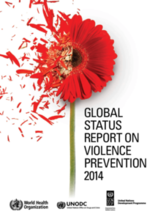This report from the World Health Organization provides an overview of the progress countries have made in implementing the recommendations set out in the World Report on Violence and Health in 2002. The report focuses on interpersonal violence and features several updates and recommendations on violence against children and child maltreatment.
According to the report, a quarter of all adults report having been physically abused as children and one in five women report having been sexually abused as children. The report highlights both achievements made towards implementing the recommendations as well as the shortcomings and challenges faced by countries in implementing the recommendations. For example, the report finds that over half of countries surveyed gather data on intimate partner violence and sexual violence but less than half of the countries conducted surveys on other types of violence, such as child abuse. Furthermore, the report finds that economic inequality and inadequate parenting are associated with a higher likelihood of child maltreatment, youth violence, and violence against women.
In the report, the World Health Organization issues several recommendations, centered around its seven “best buy” strategies focused on preventing violence and response efforts. These strategies are: (1) developing safe, stable and nurturing relationships between children and their parents and caregivers; (2) developing life skills in children and adolescents; (3) reducing the availability and harmful use of alcohol; (4) reducing access to guns and knives; (5) promoting gender equality to prevent violence against women; (6) changing cultural and social norms that support violence; and (7) victim identification, care and support programmes.
United Nations Office on Drugs and Crime, United Nations Development Programme

